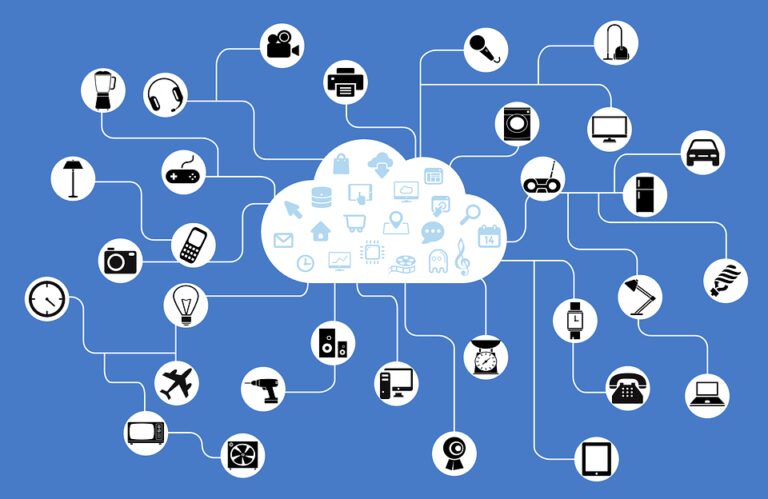In the past, people could only dream of (futuristic) smart homes where all their gadgets and devices could talk with one another and work in perfect unison to cater to our every need. Now, truth be told, we are not yet Wall-E level (technologically), but thanks to the Internet of Things we could reach that point sooner rather than later. Yet, what does this all spell for the future of business? Keep on reading to find out.
1. New Job Opportunities
Once we unlock all the potentials of this technology, new products, ongoing services, and business models will emerge, creating brand-new jobs related to this sector. Start-ups will, most likely, be the first to try and create a vibrant ecosystem around this technology; bigger corporations will shortly follow suit. Consequently, new business lines in the form of supporting industries could emerge as well. For example, the manufacturing of new analytical and monitoring tools. In addition, there could also be a need for brand-new security systems and solutions to combat possible threats and cyber-attacks. The opportunities are endless.
2. Data Galore
When it comes to business — the more data, the better. Simply put, businesses no longer have to shoot in the dark and wait for results. With the advent of technology, both senior and junior executives can now make precise data-driven decisions with minimal human error. This is where IoT comes in handy. At the moment, IoT is pilling mountains of precious data for business owners to collect; by 2020 this number will be astronomical indeed. For example, by monitoring sensors connected to assembly lines, vehicles, and warehouses, managers can gain valuable insight they can use to optimize workflow, streamline operations, and find new solutions, opening the door for innovation and growth.
3. Better User Experience
When it comes to IoT, data is real-time. Meaning, companies can now fix issues rather quickly and solve any problems that may arise. For instance, broken elevators, stuck doors, and those sorts of things. All of these can be addressed by swiftly dispatching maintenance teams or supporting crews to the location as soon as the malfunction arises. This synchronized connectivity just takes the whole user experience to another level. Now, couple this with Orange fiber fast internet and you will get a feeling that you are connected with everything almost simultaneously. Nothing short of magical. In the end, your customers will take you for a wizard.
4. Understanding Customer Behavior Better
Now, this one is a bit cheeky. With the help of cameras and other visual sensors, marketers can get a better insight into their customers’ behavior, needs, and overall shopping habits. This information is essential for running successful marketing campaigns, as well as creating targeted offers for individual customers. This way, retailers will be able to anticipate customer reactions and plan accordingly. For example, setting up cameras during promotional events in shops and stores to observe and find relevant patterns in customer shopping-sprees.
5. Reduced Maintenance Costs
One of the biggest plagues of the retail industry is the high cost of maintenance and inventory management. Luckily for them, when IoT takes the driver’s seat, we will see a significant reduction in maintenance costs in the next few years. Again, sensors are the name of the game. With cloud based inventory management software, managers will be able to see a reduction in downtime and there will be less stockpiling of unnecessary goods removing the need for extra storage. What’s more, it will help create more efficient supply chains with better transportation routes and solutions to reduce costs and increase profits.
6. Energy Efficiency
We already see the use of IoT with smart houses, so why not use it for business complexes as well? This could greatly reduce the electric bill (especially for smaller companies) and significantly lower our overall energy consumption. IoT can easily monitor the lighting, temperature, and energy usage of office buildings and adjust them accordingly by the use of clever algorithms. The result: no more wasted energy when you forget to hit the switch on your way out. In the end, companies, both big and small, will effectively streamline their energy bills while also lowering their carbon footprint. Business owners will be happy, the Earth will be happy — a win-win for all!
7. Increased Security
Last but not least, there is the matter of security. Business owners can relax and sleep soundly at night for their respective businesses are now in good hands, or should I say — eyes. By integrating IoT into your core business processes and systems you get the benefit of increased security. Just imagine a couple of burglars trying to sneak into your office building at night. Sensors and cameras will pick these intruders in real-time and contact the authorities in a matter of seconds. What’s more, it can foil any incoming cyber-attack or breach by providing real-time insight on the status of all computer systems. Not bad for a bucket of bolts.
All in all, there are already numerous applications of IoT in our present time and this is just the tip of the iceberg. Who knows what this technology will bring next and what its impact will be on business in general; only time will tell.

0 Comments